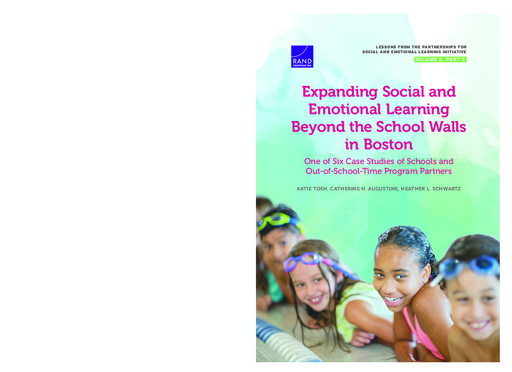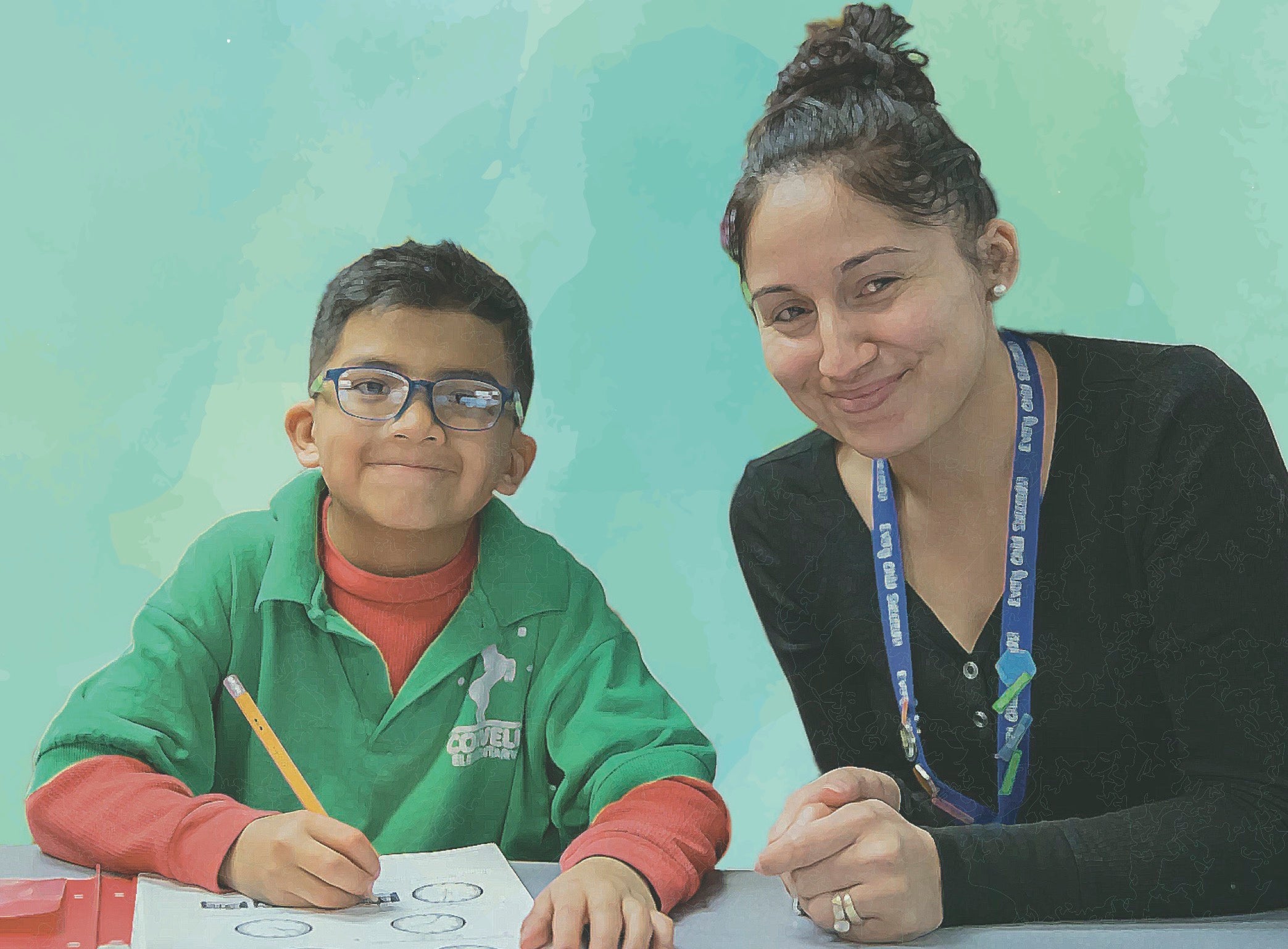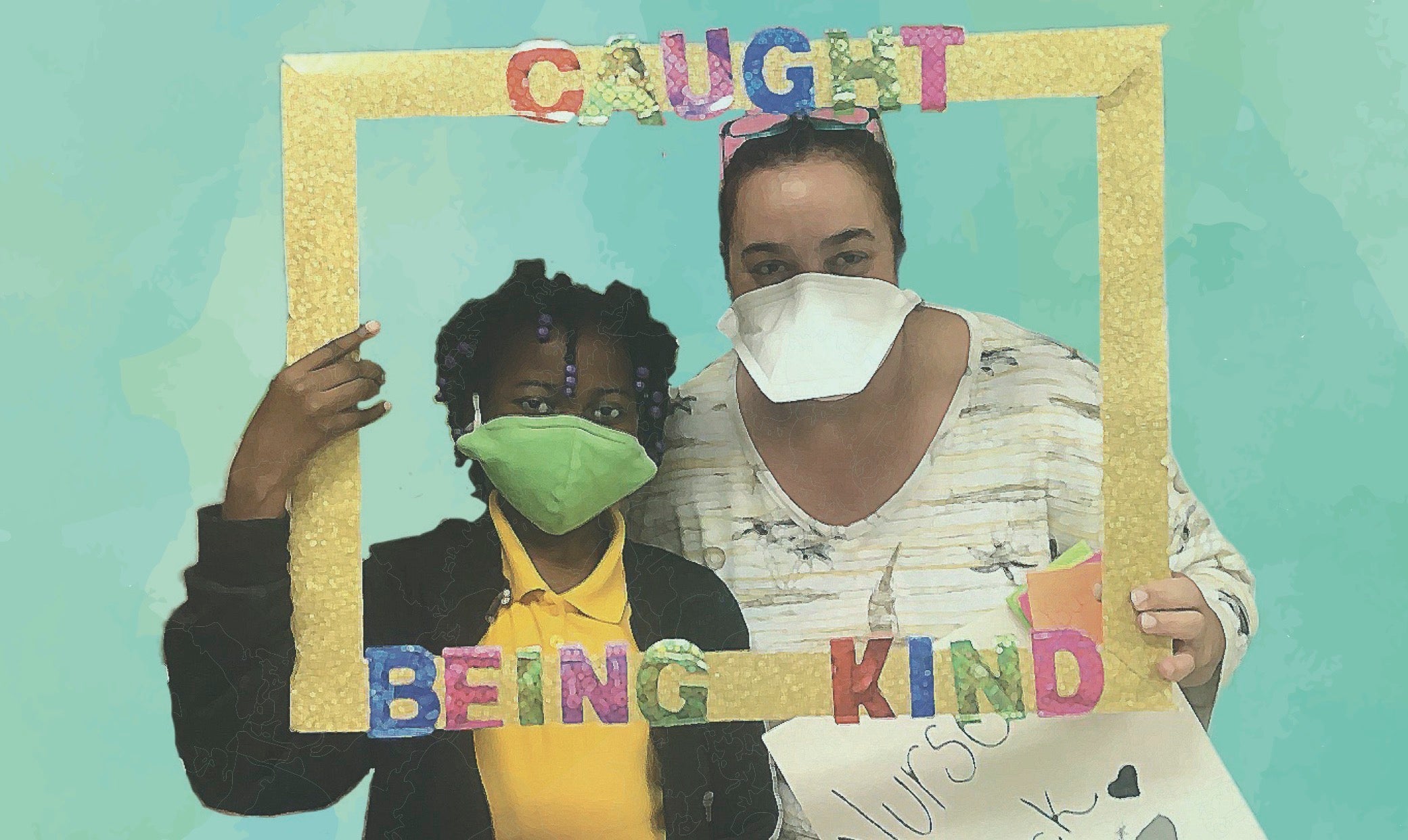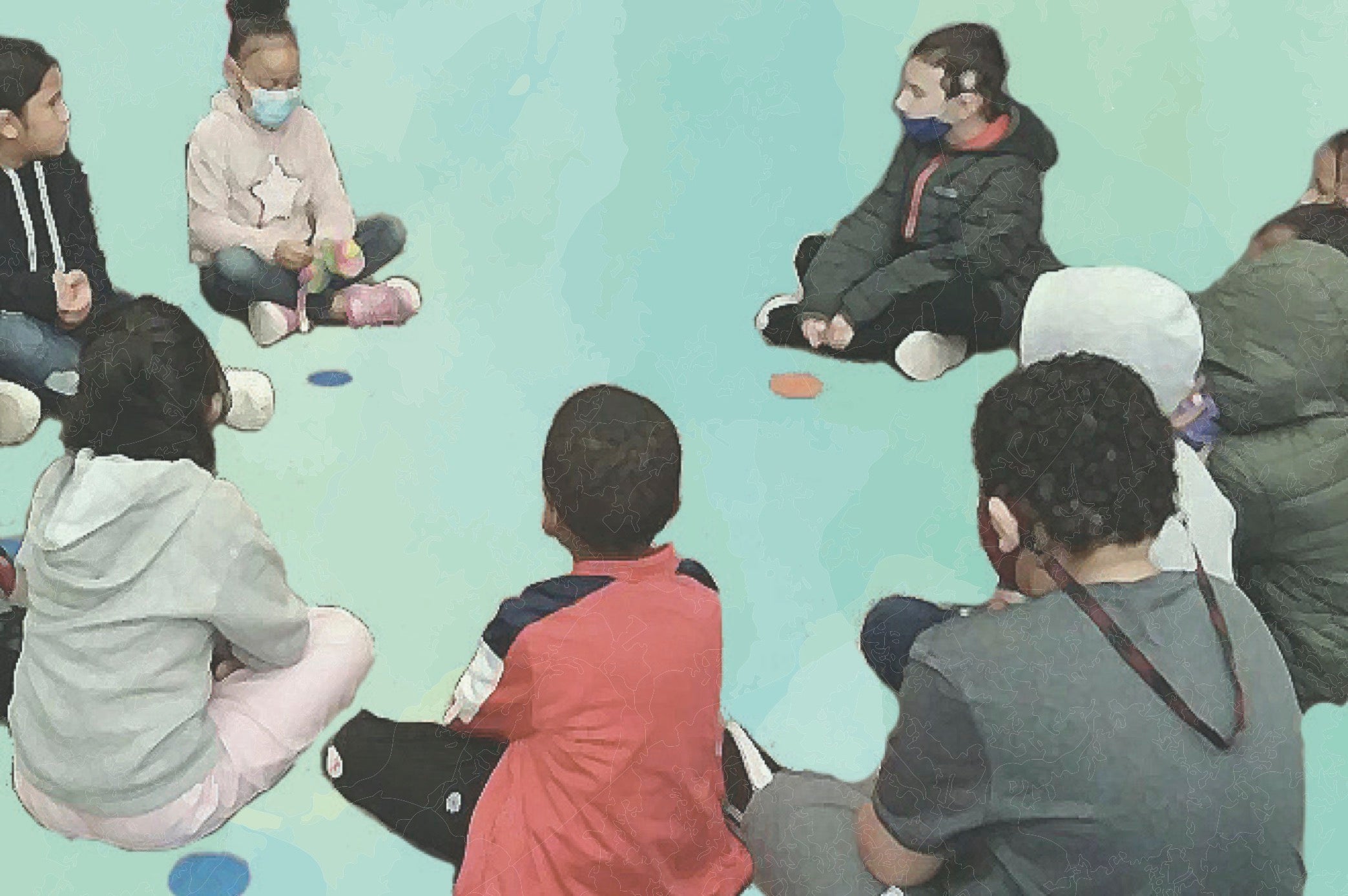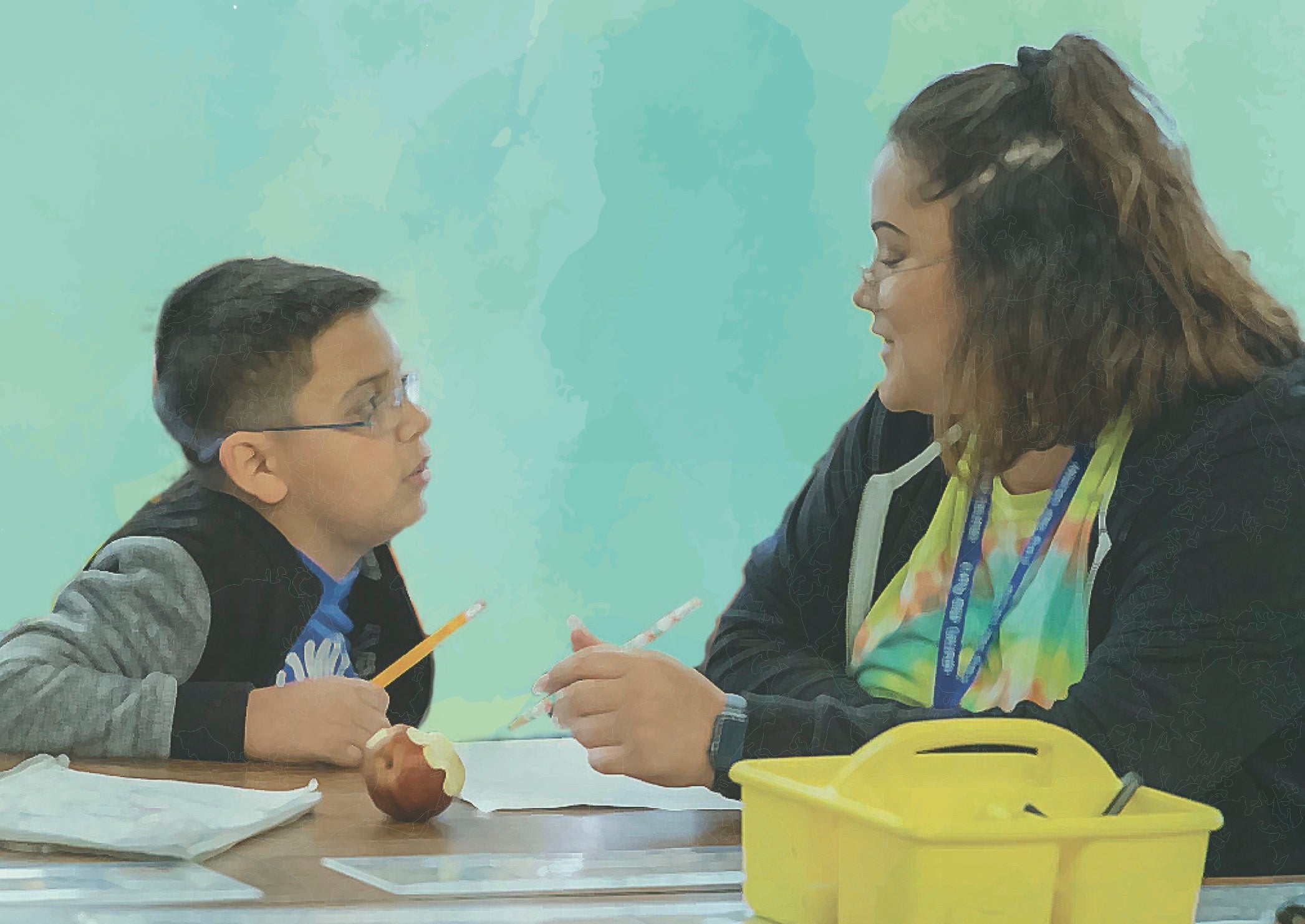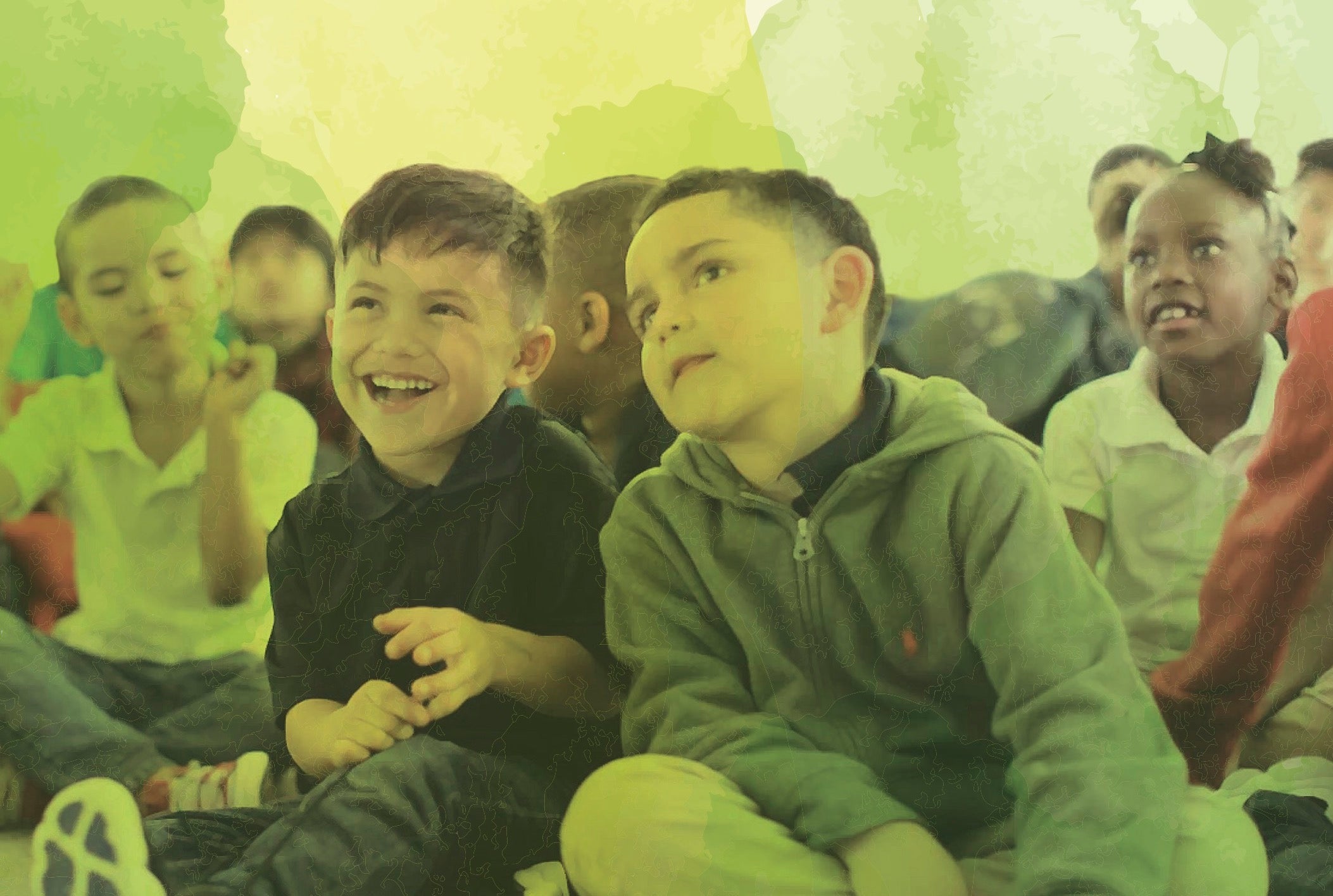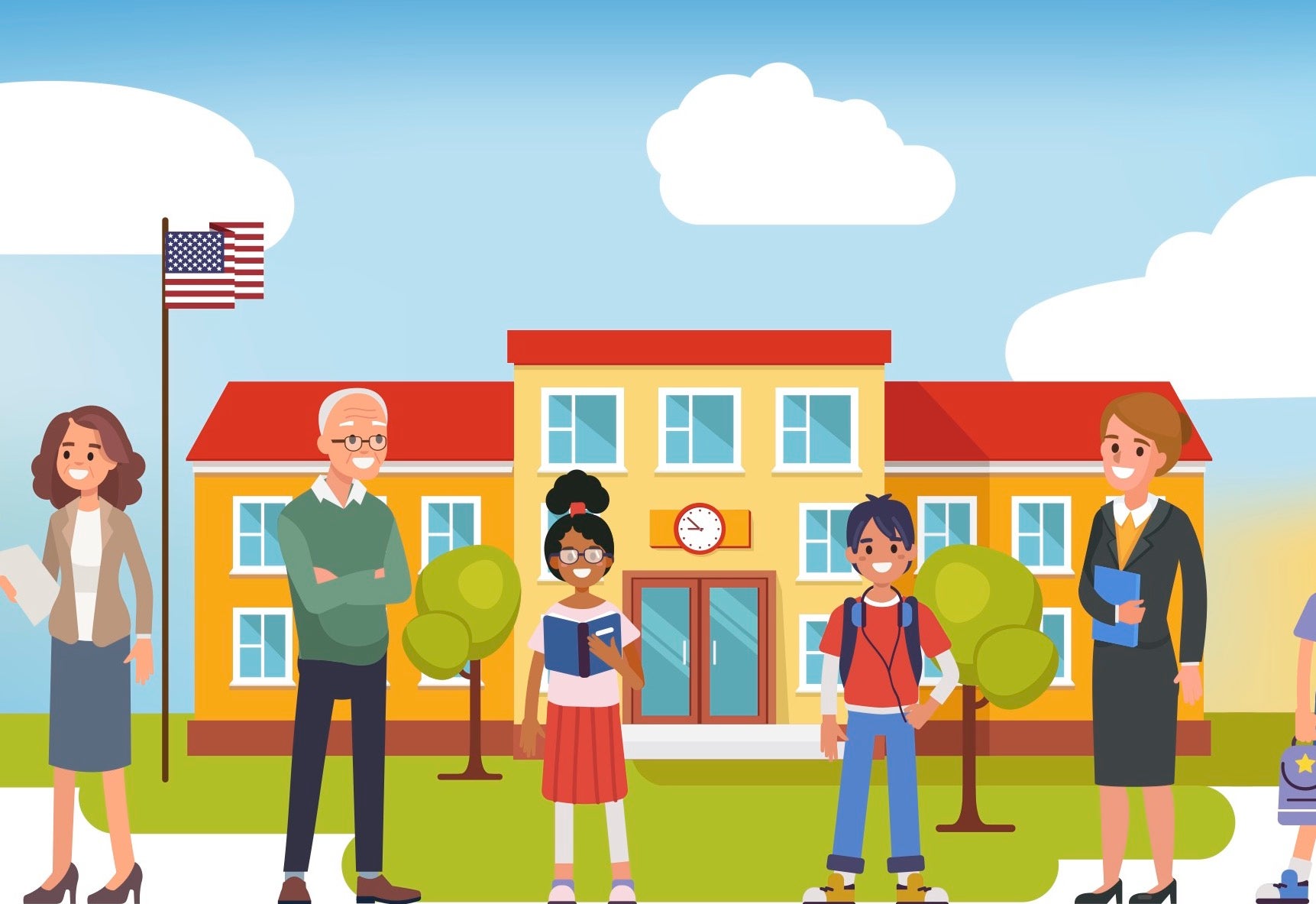
Breadcrumb
- Wallace
- Reports
- Expanding Social And Emotional L...
Expanding Social and Emotional Learning Beyond the School Walls in Boston
One of Six Case Studies of Schools and Out-of-School-Time Program Partners

- Author(s)
- Katie Tosh, Catherine H. Augustine, and Heather L. Schwartz
- Publisher(s)
- RAND Corporation
- DOI Link
- https://doi.org/10.7249/RRA379-5
Summary
How we did this
Researchers drew on a variety of data for this case study of a partnership between Russell Elementary School in Boston and its OST partner, the Boys & Girls Clubs of Dorchester.
A shared social and emotional learning (SEL) curriculum and rituals: These elements contributed to a successful partnership between Russell Elementary School in Boston and its OST partner, the Boys & Girls Clubs of Dorchester.
Those were the findings of this case study, one of a series detailing how schools and OST programs in six communities collaborated to build students’ social and emotional skills. The communities were participants in Wallace’s Partnerships for Social and Emotional Learning Initiative. It brought together school districts and their OST partners to develop and put in place SEL activities across learning settings.
Improving Collaboration
The goal was to give students important enrichment activities that they otherwise would not get in their normal school day. It also aimed to provide the opportunity to learn social-emotional skills in new settings and contexts.
To that end, the partners worked together to strengthen their partnership and improve collaboration between teachers and OST program instructors.
That included:
- Focusing on adopting a shared SEL curriculum and rituals across the two settings
- Collaborating to expand Russell students’ access to enrichment by using the Clubs’ ample facilities, which the elementary school lacked
- Sending students to BGCD during the school day, since the Club tended to be under-utilized during regular school hours
Staff survey data showed substantial improvements in the partnership over time. In spring 2018, only 11 percent of school staff agreed that there was a respectful relationship between the school and OST program. That percentage increased to 71 percent of school staff by spring 2019 and 100 percent of OST staff in spring 2020.
Overcoming Challenges
The case study details how the partnership overcame challenges, including early financial obstacles, scheduling bus transportation, and disruptions to the learning schedule in both settings. That happened through:
- Consistent weekly and sometimes daily communication between the principal and the OST program director. That helped to solve problems as they arose and to develop the partnership at the leadership level.
- Formal and informal opportunities for program staff members and Russell teachers to collaborate and see each other’s work. Doing so built trust and strengthened relationships, increasing staff and teacher buy-in to the effort.
- Coaching to help teachers and instructors in each setting.

We’re going to take our entire school [to the Boys & Girls Club]. With music, with art, with yoga, we’re designing lessons that extend beyond the curriculum, based on social-emotional learning. The hope is that kids will find their passion.
— Derrick Ciesla, principal, the Russell Elementary School
Key Takeaways
- Boston’s Russell Elementary School and its out-of-school-time program partner, the Boys & Girls Clubs of Dorchester, collaborated to build students’ social and emotional learning skills by providing SEL enrichment off campus as part of the school day.
- Offering formal and informal opportunities for OST staff members and Russell teachers to collaborate and see each other’s work built trust and strengthened relationships.
- The two partners adopted a shared SEL curriculum and rituals across the two settings.
- Consistent communication between the principal and the OST program director helped to solve problems as they arose and to develop the partnership at the leadership level.
Visualizations
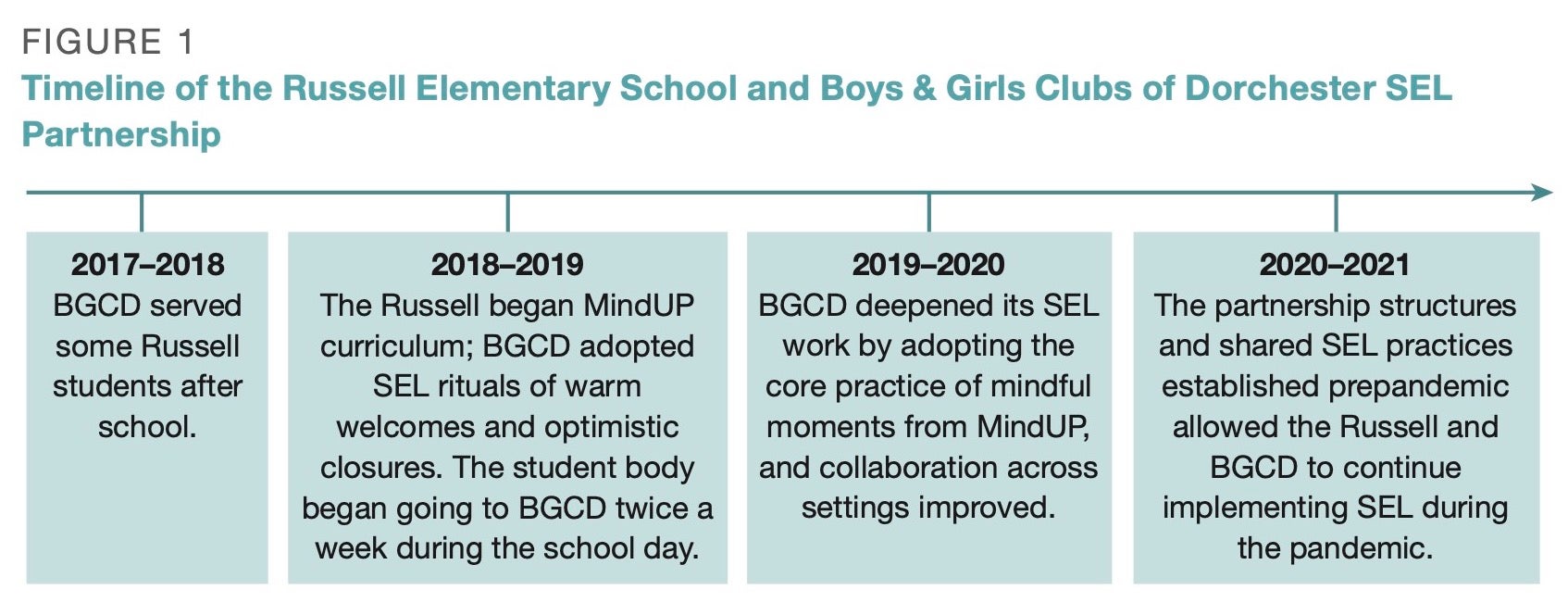
Materials & Downloads
What We Don't Know
The collaboration took place in a large urban district primarily serving students from historically disadvantaged populations. For that reason, lessons learned may not apply to all elementary schools.
